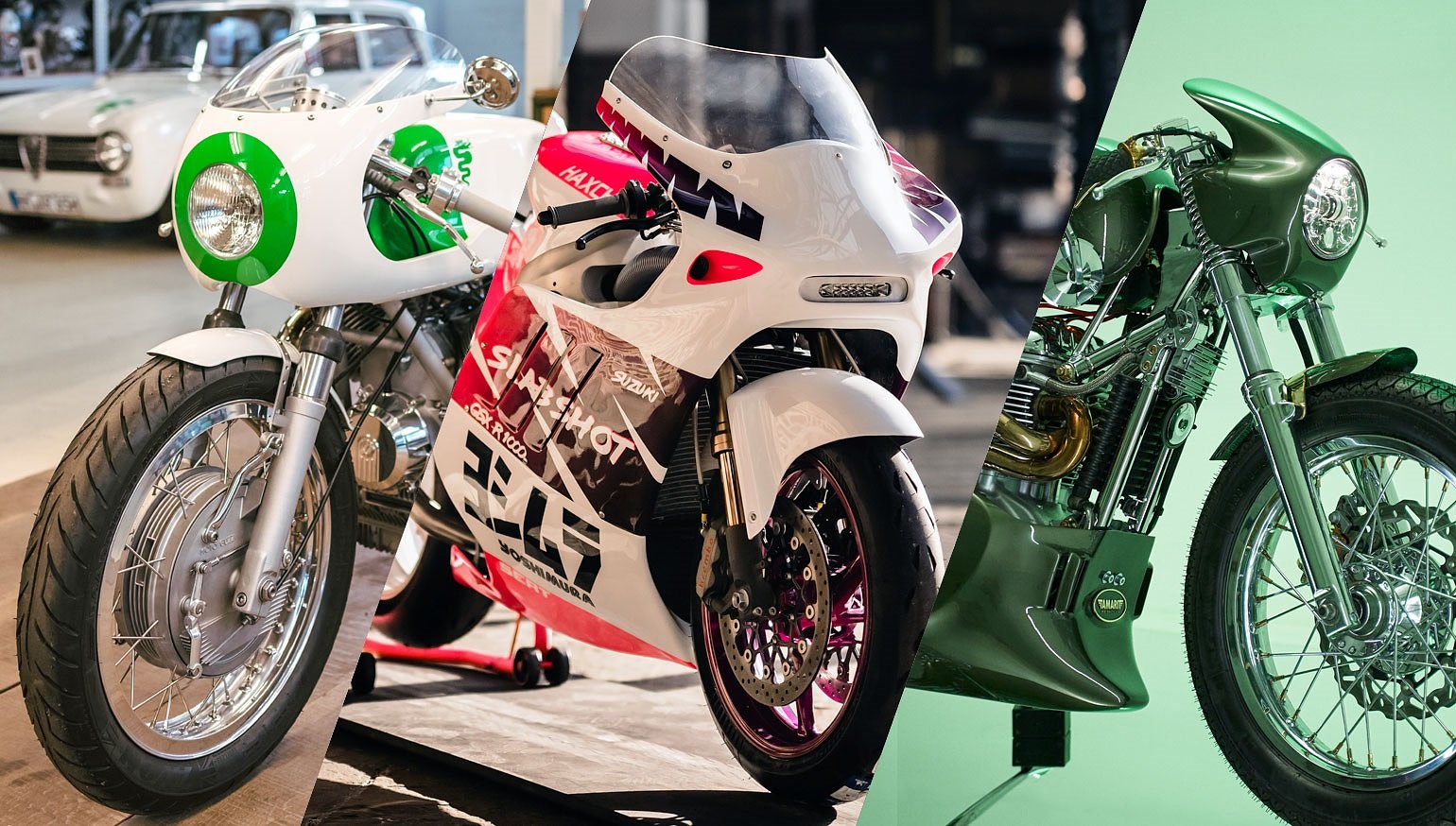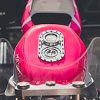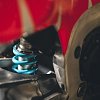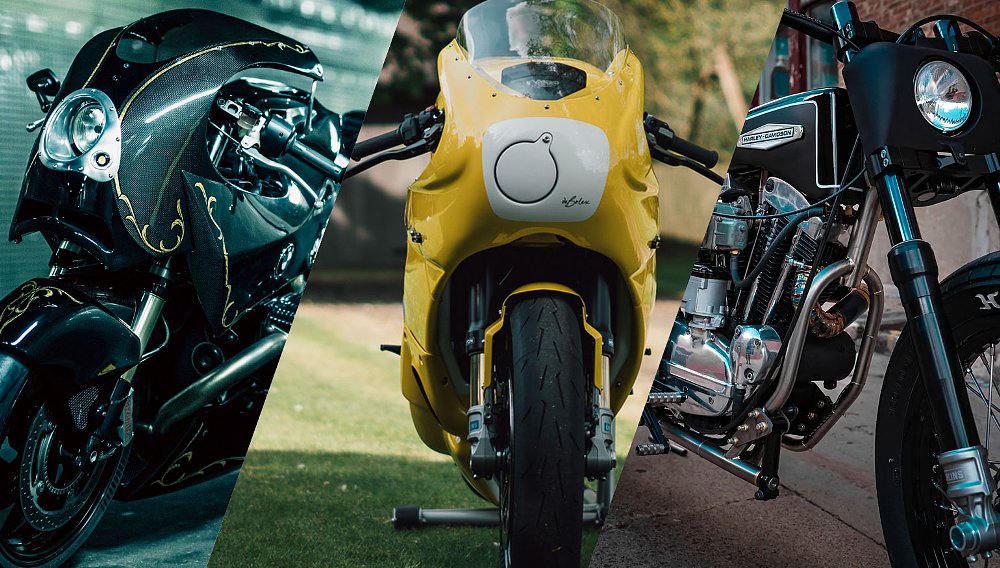Inspiration comes in many forms. In this month's custom roundup, you'll find three motorcycles inspired by three very different sources.
First, we'll take a look at a UK-built modern Suzuki in 1980s attire. We then head to Germany, where Kaffeemaschine has put together an Alfa Romeo-inspired Moto Guzzi. And lastly, we stop over in Spain to check out a Triumph Thruxton that's been named after a big angry green brute.
Editor's note: Geoff Baldwin launched the website Return of the Café Racers in 2006 and has been obsessed with custom motorcycles and the scene that surrounds them ever since. He’s also been the editor of an Aussie print publication, launched Australia’s first communal motorcycle workshop, hosted several custom-focused events, and contributed articles to other websites, including BikeExif and Pipeburn.
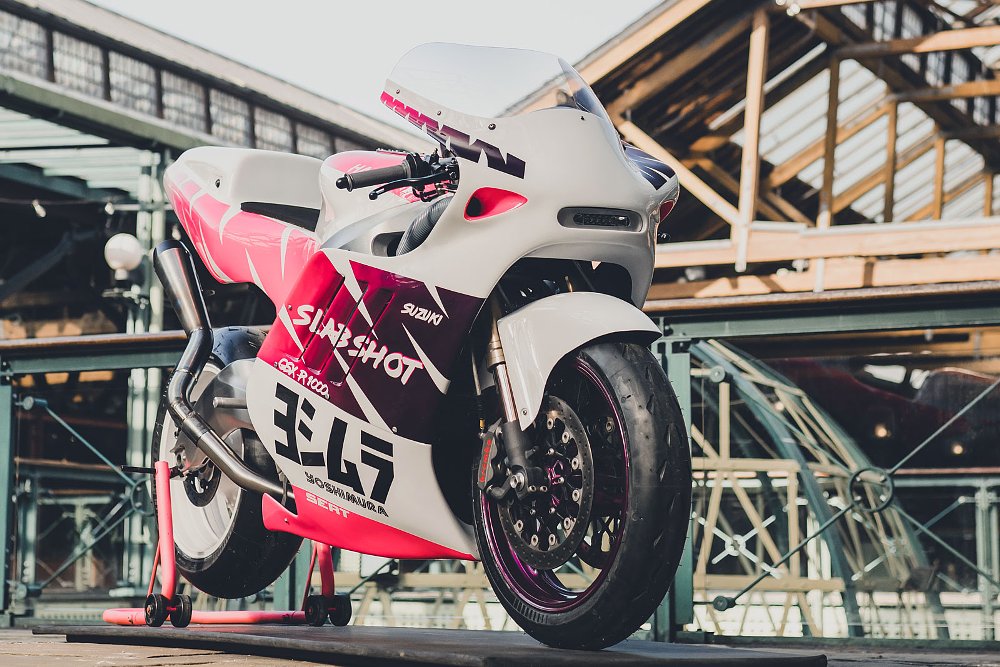
"SLABSHOT" Suzuki GSX-R1000 K9 by HAXCH
HAXCH (Instagram) founder Marc Bell specializes in metal fabrication for high-end interiors. Within the confines of his design and fabrication studio, you'll find a space dedicated to his love of 1980s and '90s Japanese sport bikes. This is where he maintains and modifies his beloved race bikes, which he puts to use at classic club race events. Intrigued by the idea of racing a modern sport bike, but loathing the looks of them, Marc decided to blur the lines between modern technology and retro styling with his latest street-and-track bike build.
With the goal of blending two of his favourite Suzukis, the mid-'80s GSX-R750 Slabside and the late '80s Slingshot GSX-R750, Marc devised his "SLABSHOT" concept.
"I spent months staring at the bike's side profile, then carving out the seat and tank in foam to get that perfect straight line running through the bike," says Marc. "Early slingshot endurance bikes seemed like a natural fit for the K9, being slightly more aerodynamic."
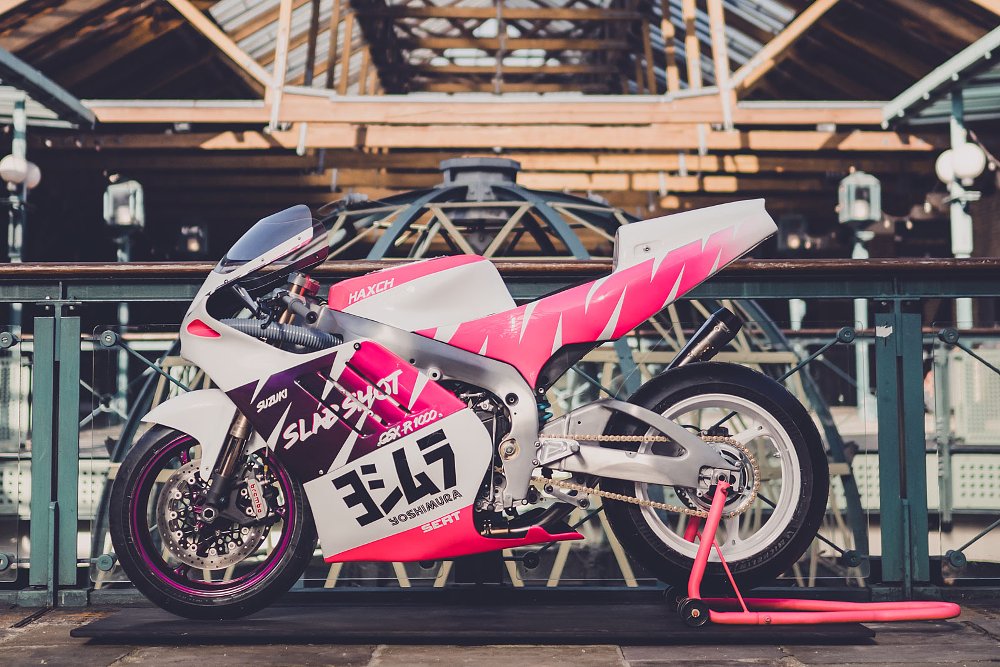
The build began with the purchase of a Suzuki endurance racing team fairing, a reproduction Yoshimura Slingshot tail, and a Slingshot fuel tank. Marc then spent countless hours modifying each piece to get everything to fit like it had been built in Suzuki's own factory. He mounted it all using custom-made hardware.
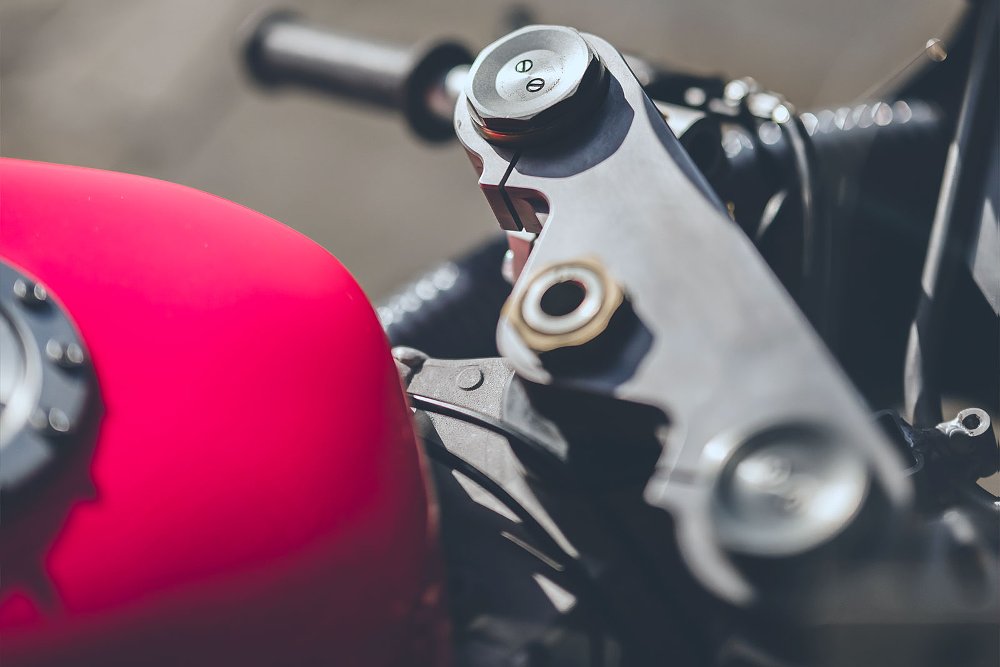
To make SLABSHOT more '80s-looking, Marc fabricated several retro-look components to replace the standard K9 equipment. These include an old-school, racing-style CNC top yoke, custom rearsets styled off early Yoshimura racing designs, and a pair of "hoover tubes" that feed the bike's air box. Not satisfied this was enough, he then stripped and soda-blasted the engine, swingarm and frame before painstakingly sanding out the casting marks and hand-brushing them for a period-correct appearance.
On top of all this, Marc's gone to town with track gear and performance upgrades. The cockpit now features lightweight clip-ons, race-spec switchgear, a quick-action throttle, and a keyless ignition system. For improved handling, the brakes use braided lines and Brembo M4 monoblock calipers. Handling improvements came in the form of a Nitron rear shock upgrade.
There's no shortage of impressive work that's gone into SLABSHOT, but its paintwork is the icing on the cake. To create it, Marc has blended early Honda Fireblade, Yamaha YZF750, and Suzuki GSX-R400 graphics. It's audacious, brash, and unmistakably '80s, and I can't get enough of it!
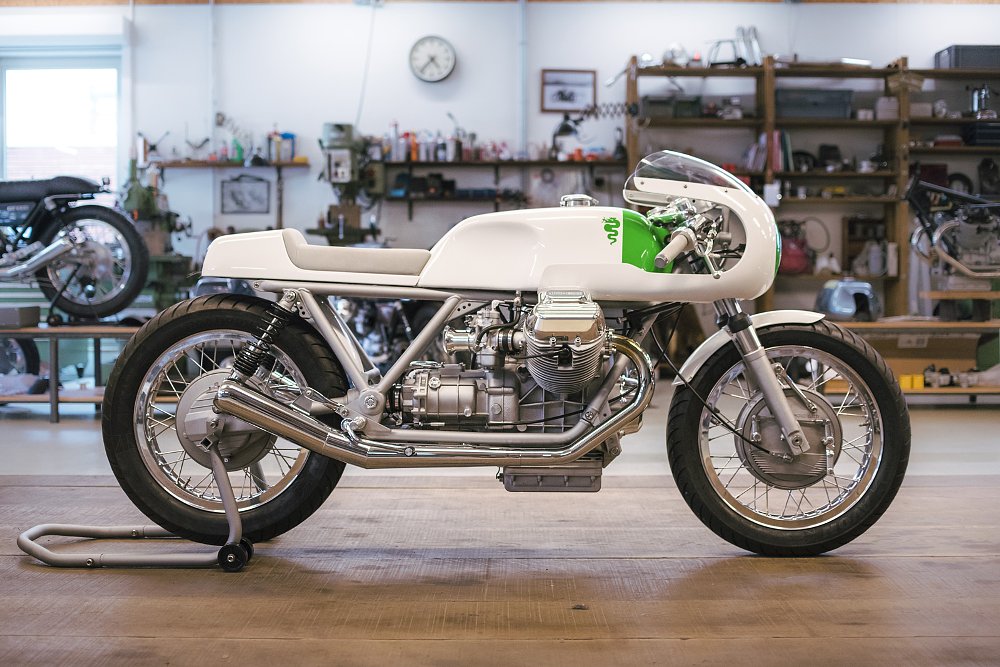
Kaffeemaschine 37 Moto Guzzi SP1000
Any self-respecting Guzzista knows the work of Hamburg's Kaffeemaschine (Instagram). Since 2011, workshop owner and lead designer/mechanic Axel Budde has been building some of the best resto-mod Moto Guzzis on the planet. Kaffeemaschine number 37 is a culmination of Budde's automotive passions. Built using a 1981 version of the Moto Guzzi SP1000, the project was inspired by his love of classic Alfa Romeos, and in particular the Giulia GTA 1300 Stradale.
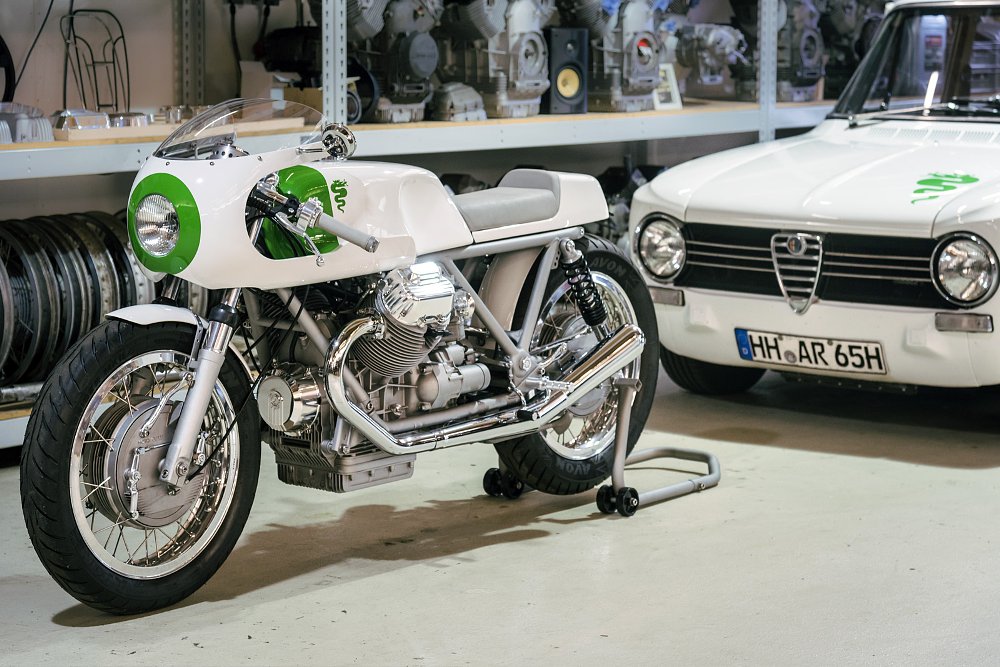
Kaffeemaschine 37 sports a Biancospino white paint scheme inspired by the car. As an additional hat tip to the Alfa brand, the Guzzi also bears the marque's crowned serpent emblems on the fuel tank and a pair of lucky Quadrifoglio four-leafed clovers on the interior of the fairing. As for the rest of the motorcycle, it's a textbook Kaffeemaschine transformation, with no stone, or bolt, left unturned.
At only 410 pounds, KM37 weighs an impressive 150 pounds less than its former self. The huge drop in weight can be attributed in part to the all-new bodywork, which Budde formed from carbon kevlar. To make the most of the weight savings, the SP1000 948 cc L-twin has been extensively overhauled and upgraded. Now boasting a capacity of 1,000 cc, the iconic transverse engine contains a lightweight clutch and flywheel, ported heads and larger valves. Fueling and exhaust have also been optimized with upgraded carbs and a bespoke two-into-two exhaust system. All this equates to an impressive 34% increase in power up to 83 horsepower.
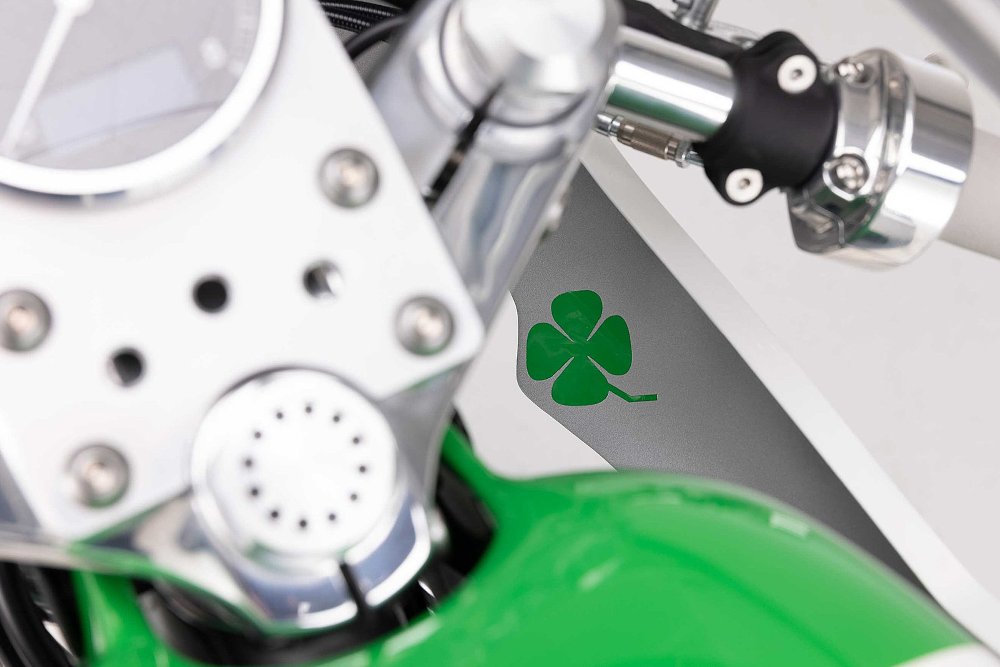
Ensuring steadfast reliability for years to come, KM37 has been completely rewired using electrical gear from the Motogadget catalog. This Guzzi café racer also presents extremely well due to every component being cleaned, restored, or polished to perfection.
If you like the look of this motorcycle (who wouldn't!?), it's currently up for sale. Working with the classic motorcycle retailer Moto Borgotaro, Kaffeemaschine is offering U.S. residents the chance to purchase KM37 from the Brooklyn-based store. Along with the bike itself, the buyer will receive a custom bike cover, tool kit, and owner's manual.
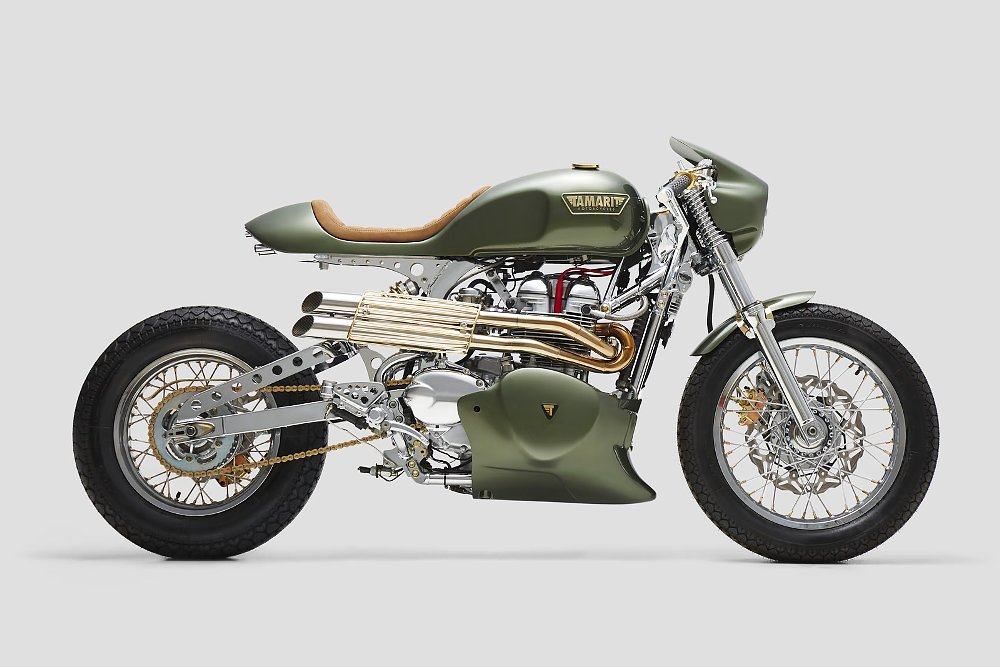
"Dr. Banner" Triumph Thruxton by Tamarit Motorcycles
This green brute is the work of the Spanish workshop Tamarit Motorcycles (Instagram). Built for a French customer, it's an homage to a fictional character from the Marvel Universe, namely Dr. Banner, the alter ego of the Incredible Hulk.
Dr. Banner was built using a carbureted, 900 cc edition of the Triumph Thruxton. Similar to the original bike, Tamarit has gone with café racer styling, but the difference between the original and the end result is, like the Hulk, colossal.
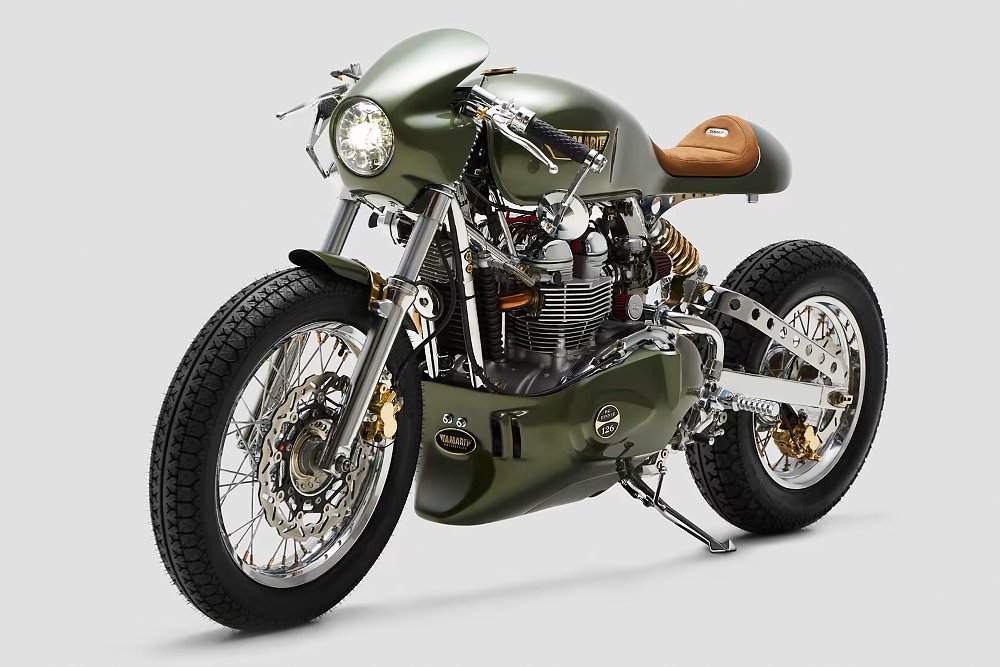
To kick start the transformation, Tamarit fit the Thruxton with all-new bodywork. At the pointy end sits a Gullwing X fairing and gyroscopic headlight from their own Triumph aftermarket parts catalog. Surrounding the engine's bottom end is a bespoke belly pan, which bears the bike's name and its #126 build designation.
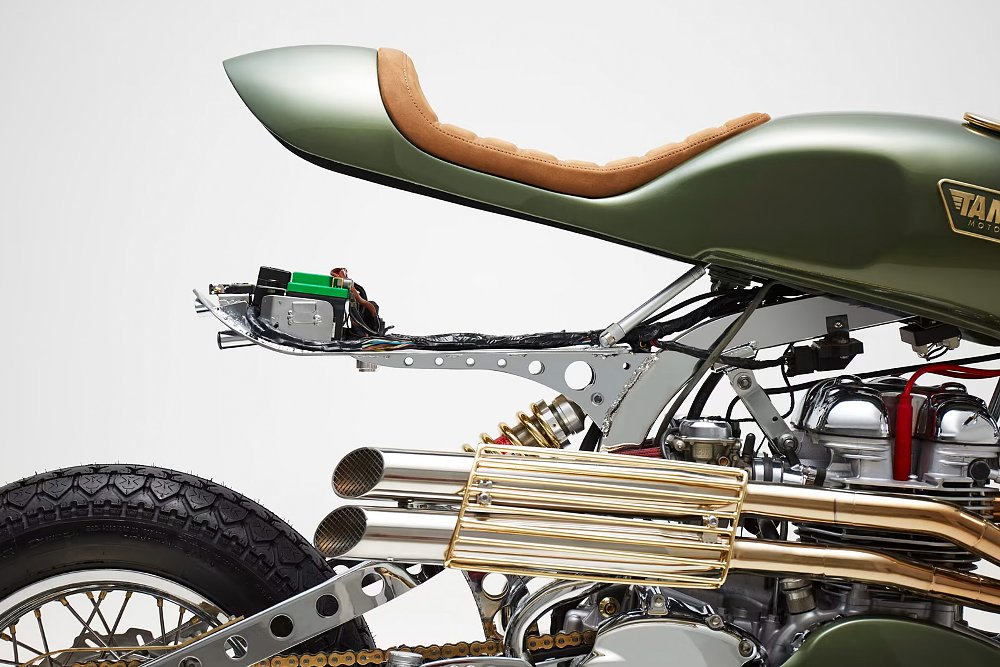
As for the fuel tank and tail unit, it's a single-piece FRP monocoque construction. Beneath the tail are the relocated electronics, including a Motogadget m.Unit Blue with smartphone connectivity. Similar to the body on Funny Car drag racers, the entire unit lifts on a nifty hydraulic hinge.
During the rebuild, Tamarit also redesigned the Thruxton's rear end. Rather than twin shocks, it now features a premium, gold and chrome-plated monoshock. Holding the new shock in place is a custom-built subframe and an extended and braced swingarm.
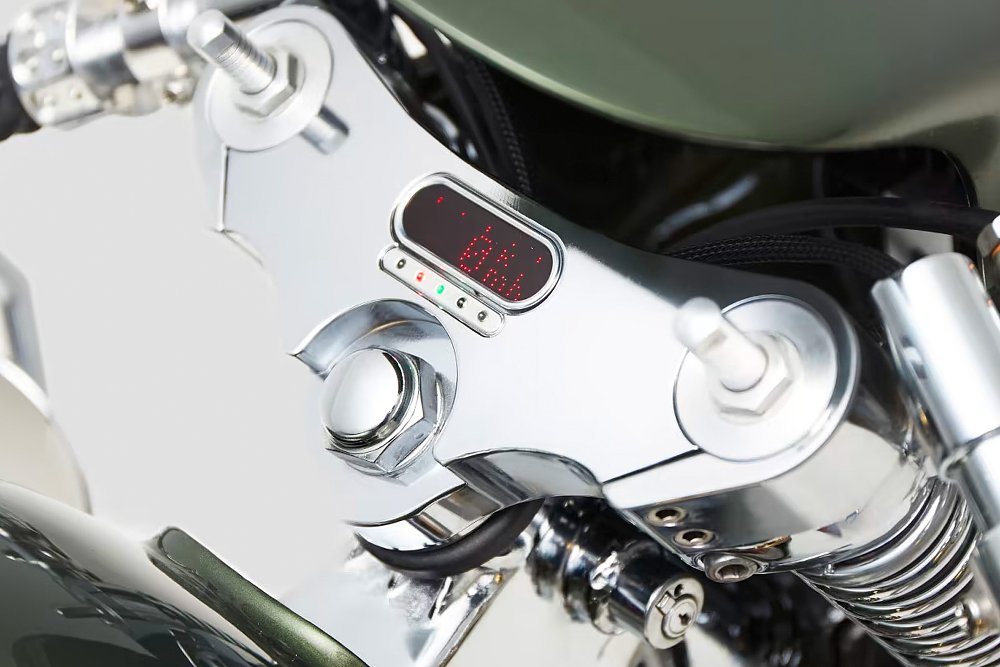
Although the front end is stock, it has taken on a whole new look thanks to a set of Tamarit Pantera springs, which mimic the look of vintage externally sprung forks. The fork sits in a custom triple clamp, which houses an integrated Motogadget speedometer. Clip-on handlebars set up the aggressive café racer riding stance along with rearset footpegs.
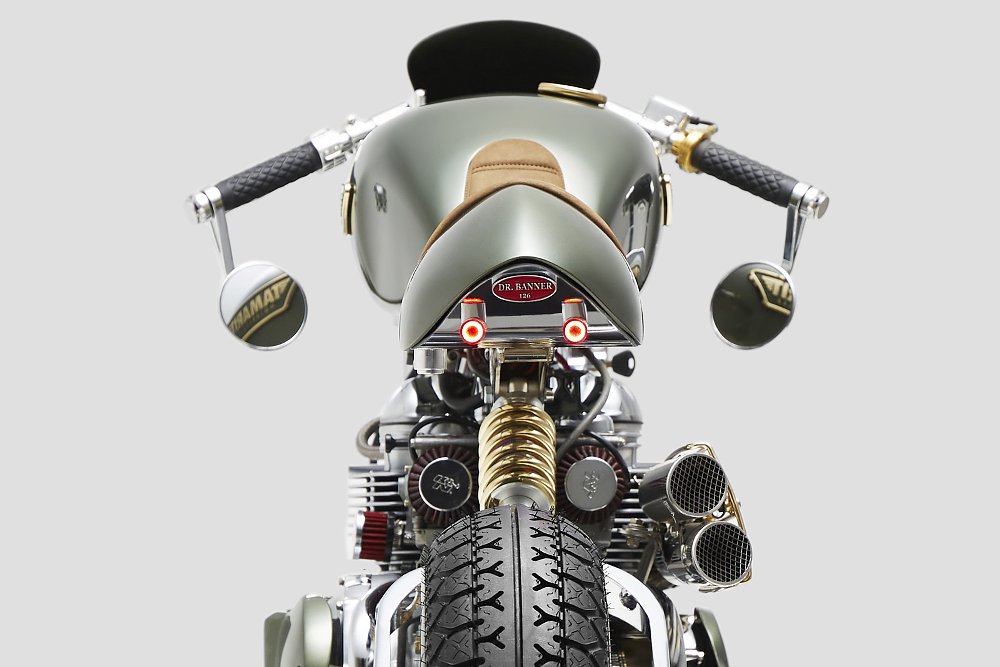
This extensive transformation also includes a bespoke high-mount exhaust system with brass details, matching 18-inch rims with classic rubber, Galfer brake accessories, and free-flowing K&N filters. Rounding off the modifications is a gamma ray green paint scheme and a tennis-elbow-inducing amount of chrome, polished alloy, and brass for its new owner to maintain.

 Membership
Membership

